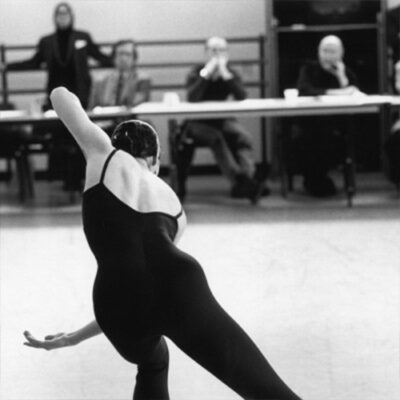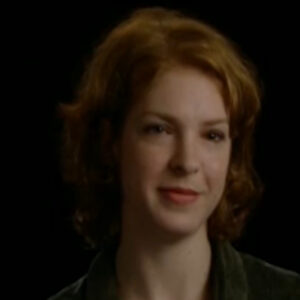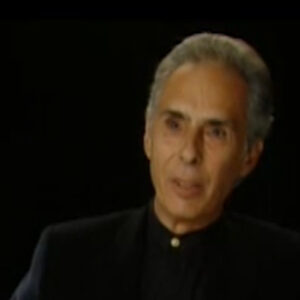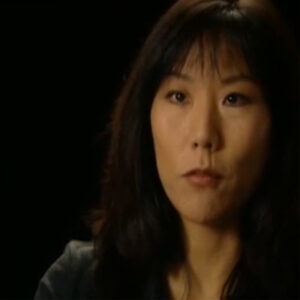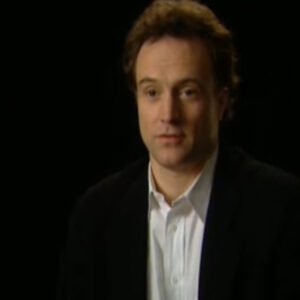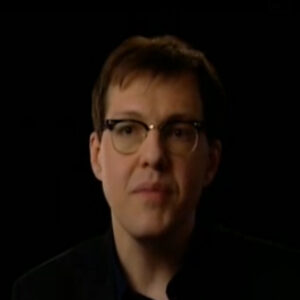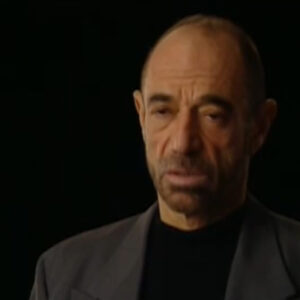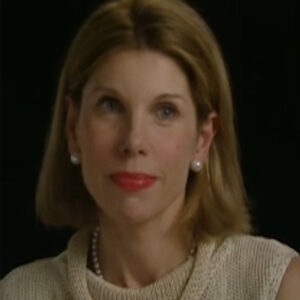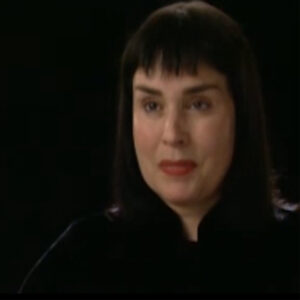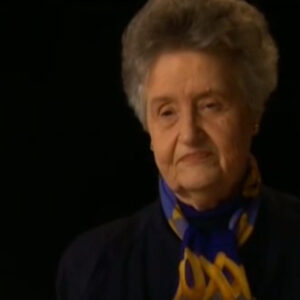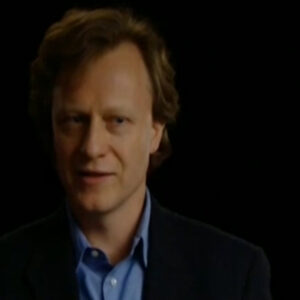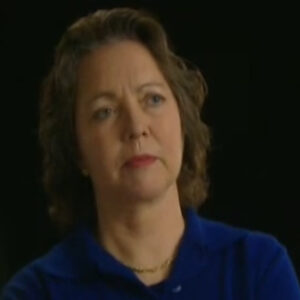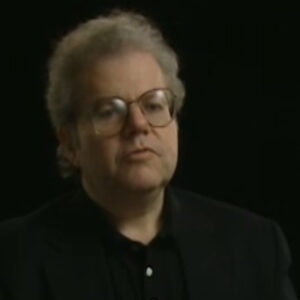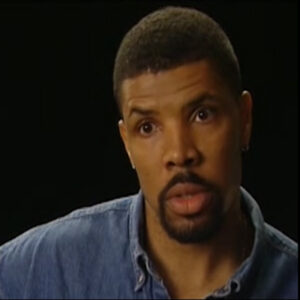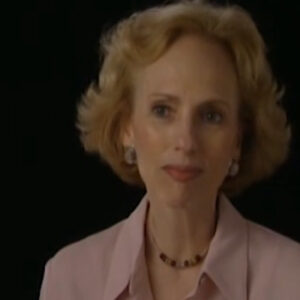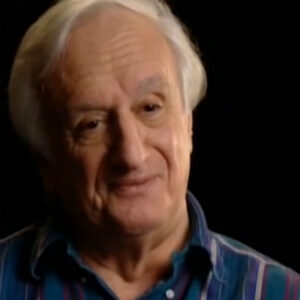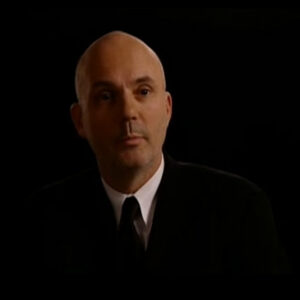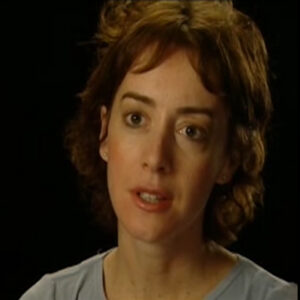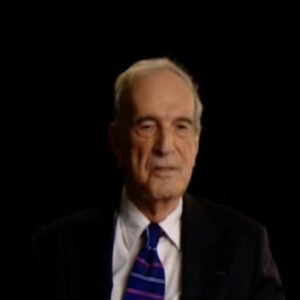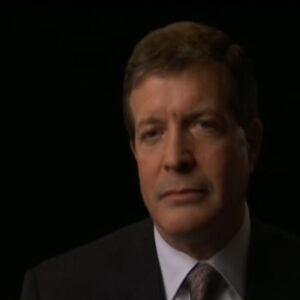Speaker First things that I mentioned, which is. The sort of musical roots in the end, the environment. That your family came from and how they really came to be this this time, Steve.
Speaker But Yamashita, Steve. And his family. What was what was your reaction to?
Speaker Well, the damage is really came from this German Jewish musical world or really that they came from this broad.
Speaker Let’s say it takes a little while to get into speaking.
Speaker The Damrosch just came out of this German musical worlds at a time when musical culture was at the center of life for for Germany in the mid 19th century when it was a good deal of sort of cultural insecurity because Germany was not a united nation. There were not as strong as France and England. The arts and culture became a kind of a center of cultural life and a kind of national pride, and particularly for German Jews. Like my great great grandfather, Leopold, this was a way to enter into a wider society. And at the same time, it became a reason for them to leave because Leopold felt he was never going to get a really major conducting post in Germany. Even though he had converted, he was still a Jew. And I think they came to this country thinking this was a place where they could really realize this ideal of culture that they had grown up with in Germany. But that wasn’t quite working the way it was supposed to work for other.
Speaker And so when when when they came to New York, when Frank came to New York and in that period of time, what was what was the musical environment like when they came to this country and how did they first begin to sort of establish their own? Roots. What were they first doing? What were their.
Speaker Well, it’s interesting that the musical life in the United States and even in New York in the era just after the civil war was pretty undeveloped. There was really music hall kind of vaudeville entertainments, and then there was just private homes. People would play a bit in their house, but there was very little really organized musical life. There was not a major concert hall in New York, for example, at the time. Most of the of the really high musical culture you’d see would be tours by European artists. There was very little native local high musical culture here. So that when Leopold came over with his family to conduct a small German chorus, he did. They brought with him this idea that the culture should be infused with an interest in music. And I think was all shocking to see how how thin the musical culture was. So they were kind of in this circle, very close knit, very tight knit, particularly German Jewish immigrants, musicians, and then trying to figure out how to make more of a space for musical culture in this country where they didn’t see what they expected they would see.
Speaker And Frank. Was. I mean, tell me a little bit about what he was doing and how he was how he was involved in a musical life in New York. Well, the sort of.
Speaker And when the sort of seed of maybe forming a conservatory or creating the I mean, how that. Why do you think that really came to him? As you know, the way to kind of move forward was what institutions were out there. What was he what was he thinking was being satisfied at that time?
Speaker Well, I think Frank developed a very broad ambition for what he wanted to try to accomplish, which was really to start again.
Speaker Coming here at the age of, say, also the first time that you talk about him in such a way. Yeah, I actually use his whole name. OK. And then you won’t have to continue to write that, huh? That’s one question.
Speaker That little beep is that somebody’s cell phone is off. But when it gets messages, it beeps or you can’t hear it.
Speaker That’s it. I just heard that. And. All right. OK.
Speaker That your phone? OK. Because I want to make whatever we can. OK.
Speaker All right.
Speaker Well, Frank Damrosch was 12 years old when it came to this country. And so he had had a childhood infused with music. Music was everything when he was a kid. He used to hide under his father’s piano and conduct along as his father was conducting the chorus. And so they get here and he discovers that there is not anything like the kind of musical life that he grew up with. At the same time, he began to really think about this culture, who was and what he came to feel was that it wasn’t enough to just train professional musicians.
Speaker There were some conservatories doing kind of one by one basis training for individual musicians. But he felt it was equally necessary to train the culture to receive the music. So he became fascinated early on by this problem of reaching students in public schools and also producing a kind of a broad musical culture that could then support the musicians.
Speaker So what his so prior to actually founding institute musical art, he had some very formative experiences, partly with organizations that his father had started the.
Speaker Let’s step back here. I think it is any good. You can also watch.
Speaker No, just three things, right?
Speaker Almost all of this material has tons and tons and tons of scales. This is where there this is where very still heavy as opposed to merely breaking. No, never say, never break. Yes, it will cut. We don’t need to be worried at all.
Speaker I looking right at you, right at the camera.
Speaker OK.
Speaker So when May I’ll just redo this. Yes, sir. Remember that. Right? Right. That’s right.
Speaker So as he grew up in this country and seeing how thin the musical culture was, he became fascinated with outreach towards different groups of people. And in his early adulthood, he undertook various projects like the People’s Choral Union, which was intended to bring together working class people from around the city. And he would go to these different locations and rehearse dozens and then hundreds and eventually thousands of people, complete amateurs, working class people, singing all kinds of really high art art songs. And he also became the first director for music for the New York City public schools because he’s really shocked to see how many people were receiving no musical education at all in school or were taught by people who themselves were completely untrained. They might have a little ability at an instrument, but they had no real knowledge about musical, his music history or musical culture. So these these broad based things to reach children, to reach adults. Well beyond the kind of upper classes that would normally be the patrons of the arts. This was this was his his life’s work for. For a decade or more until he finally was able to establish a music school. By the by the happy chance of meeting James Loeb, another interesting kind of displaced person, another German Jew who of a wealthy background, who didn’t want to go into banking like his father had done and who had become obsessed, lively, interested in both in classical education, in the classics. He founded the of classical series of classical texts. And also, he was a cellist and loved music. And when Frank Damrosch met Loeb, he was able to persuade them to endow the school. And endowment was very important for Frank because it meant that then he could provide actual salaries to the teachers. This is an innovation in this country. The few schools that existed before were simply places where an individual teacher would contract with a group of students. And the more students you had, that was how you got your income. And what Frank really wanted was a radically different kind of school. And then that kind of one on one individualized training where the teachers worked together for the school rather than for themselves with the students, they would have a common pedagogical purpose and they would try to reach out once to completely different audiences that have not been put together before. That is, they would teach future virtuoso virtuosi. They would teach really people who would become professional musicians, but they would also teach people who become music teachers in schools. And they start out with a very large enrollment from the second year. They had six hundred students in the school.
Speaker And Frank had the idea that the base of the school was people who had gone to teach music in schools so as to create the public for the small number of professional musicians to perform for. And they also wanted just to teach amateurs, but very serious amateurs. And I think this was the thing that was most distinctive about the school. He thought that anyone should be able to develop the musical ability, but they should do it in the most disciplined possible way and do it really seriously. And the School of Beauty has to do this. Weird.
Speaker I mean. I mean, talk a little bit about the three different things coming up with this.
Speaker Philosophy. I mean, I think you met James on a boat or something. I mean, he was he was he was he was hunting around for money before he really ended up finding love. I mean, so the way he thinks. I want to. I want to go down to school now. Yeah, I mean, killed. What that sort of.
Speaker How was he?
Speaker Yes.
Speaker Well, I think boats were very important as fundraising locales, it seems. Uncle Walter met Andrew Carnegie on a boat to Europe. Persuade him to build Carnegie Hall. In about 1890 and within a year or two after that, Frank had the idea. Well, now, if I could meet someone on a boat, I could also get funding for a school. And I think these two things were very closely related. Before Carnegie Hall was built, there was no world class concert hall in New York at all. You need a place to perform. You needed people to do the perform. You need an audience. And already in the early 1990s, Frank was starting to think about putting these things together together with a radically new pedagogical method that he had and with all of these components together. He had the idea that people should really learn music more the way they learn a language from their ear, from hearing it, from singing it, rather than from studying notes on a page. And that sense was a precursor to what’s done now with the Suzuki method. That kind of thing, or the way that language instruction is increasingly done now? Not not so much out of a textbook, but from really the living experience of it. He really wanted the music to infuse your life. And so he had a new method and he wanted his school, which would combine all of these features where there would be classes in theory, where everyone would come not just to study their instrument or their their voice lessons, but to study music, history, music theory, to hear performers come and play at the school. It was to be a whole musical culture together. And he continually had to to force his students to do the full program and not just the one or two things they thought they were interested in.
Speaker So so ultimately, he I think we actually have to say that he ultimately formed, you know, with bloke’s help, the Institute of Musical Art and sort of had its opening day. And where was it? What was that sort of.
Speaker So Frank does not seem to do things by half measures. And it was very important to have a substantial endowment for this school so that it could really be self supporting and be a true school. And it needed a beautiful mansion to play in. And he got half a million dollars from James Loeb. Loeb himself was an interesting character, sort of mercurial, a little bit impulsive, a little tendency towards depression. And he sort of acted on impulse. And at first agreed to give fifty thousand dollars towards this worthy gesture and then then up to the five hundred thousand dollars a few weeks later. So we instantly had a school which had the foundation for a school. They found an old mansion. They renovated it and it became this. Within a year they had the school going with 300 students. The next year they had 600 students that quickly outgrew those buildings, then built their own brand new school buildings up by Columbia.
Speaker So you add also the which I can fit in wherever the school was actually on Wall Street. The building that they eventually the school and what was sort of what you know about the sort of groundbreaking of that and why? Why did they get the name? Where did that?
Speaker I don’t know. Do you know anything about that? But I mean, I think we you just say yes. He decided yes.
Speaker So with Loeb’s help, they found an old mansion that had been with with help. They found an old mansion on Fifth Avenue and 12th Street and they decided to name at the Institute of Musical Art, which is very important because it wasn’t going to be someone’s pet project. It was not the so-and-so school. And it was also not just a school of music, but musical art. This is very important to him. That was really part of a whole broad artistic culture that they were going to inculcate via music. So they opened in nineteen of five with, interestingly, a keynote address by Woodrow Wilson, who at that time was still president of Princeton University.
Speaker Very much seeing the school’s mission as part of a broad educational mission overall rather than a technical school. Only.
Speaker And tell me a little bit from from your own sort of family law, what?
Speaker What it was like, I mean, we’ve certainly looked at a lot of different photographs and what kind of world your family was in. I mean, we’re talking about things like, you know, we love that. We love the summer.
Speaker I mean, guys like what was what was he like and what was this?
Speaker I mean, your family had all these connections to other musical. I mean, what what was that world ending up like in that generation?
Speaker From what I have. Oh, this is just what I. But I was called grandpapa and the family, but maybe I should not use that or maybe I should use that. I don’t know by.
Speaker Well, from what I’ve always heard about grandpapa, as my father always called him, he was an extraordinary mixture of your most kindly Jewish grandfather and oppression general. It was his two things together, I think, that made his character and that shaped his interactions with people. He was incredibly devoted, selfless, kindly, but also utterly ruthless. Stern and strict, where his principles were involved. He would exhort his students as they graduated, that they they must not give in to any temptation to increase their incomes by lowering their standards. There can be no compromise. He would tell them he took he took it even having fun. He took incredibly seriously, hit this little boat up in Maine and Steel Harbor that he used to sail. And us Tarkowski is to call him the admiral because it was such a serious matter, even sailing this little boat around Seele Harbor.
Speaker And at the same time. So how would I elaborate on that?
Speaker Well, I’m not sure. Ask me some further follow up question.
Speaker I mean, we’ve also heard from some people about his involvement school, school that. At every audition, I mean, his is his role at the school in the early years was a seemingly total right. And and yet also from this rich culture like music in his own home. And you know that it was he was completely a part of the fabric that he would be this grand desk in middle school. That’s right. You know, it all sounds very romantic to me. Far more romantic than Juilliard today.
Speaker The ugly film history. But, you know, it seems like that there was a.
Speaker There was a kind of a proper element to this, which is maybe part of this. It was very much a product of its time.
Speaker People very well-dressed, well-mannered. They.
Speaker The school became very much an expression of Franks personality, I would say both in that it was extraordinarily proper. You had to wear your hat in school if you were a man. The faculty wore black tie and tails to the final exams every year. You would stand up if the director came into the room. All that kind of thing. At the same time, extraordinarily free of social pretension. From the beginning in the charter, the school, it was explicit that it was open to to both genders, to to people, irrespective of race, creed or color. Social class was of no importance at all. A scholarship fund was established from the very beginning, is very important to their work.
Speaker So in that sense, it was both a very Victorian propriety, but also a very kind of broad based social vision that it would be the whole of American society that could come into the school. Frank was incredibly hands on. He interviewed every single student. He conducted the pedagogy class as well as the site singing class, as well as the orchestra.
Speaker He continually kept in touch with his his faculty. And he it worked because he was so dedicated and so actually selfless. He had a bunch of extremely eminent people come to teach and brought them into a community that they felt they were working together as a case of whole. His biggest complaint with the earlier conservatories in the country was that it was a bunch of individual entrepreneurs. And what he really wanted was to forge a community of teachers and of students working together. And this he did with it was extraordinary success. Nick could do it both because he was so kind and so deeply interested in each student and because he was so authoritarian and so sure that he knew what they needed. One case of this, there was a young Bohemian emigrants named Plant Schatzker who wanted to become an opera singer, and she took classes and came to talk to him to be evaluated at the end of a period of study. And he he crushed her with his first phrase. He said, mesures go. You do not have the voice to become an opera singer. Do not think you can do this. But then the second thing he said to her was, and yet you sing with great expression, you should become an actress. And this is what she did. She became a star of the silent movies, which is a very nice solution because the audience didn’t actually have to hear her, you understand? So he would actually take someone and mold their life. He had no hesitation whatever to do that. And the students were incredibly devoted to him, as were his faculty, for this kind of gentle way of running their lives for them.
Speaker Well, it’s jumping way ahead, but there’s I feel that that element and maybe it’s a conservatory element, maybe that’s the part of the conservatory myth, that it’s not really a myth that you go into these places and. You’re your family are, you really are. I mean, you know, the the way that you’re supposed to be and what you’re supposed to do and what this will mean and what this is quite written out for you. From that, you say, you know, even to this day, I’m going to go to Juilliard. It’s a pretty. That’s a pretty tight idea.
Speaker It was very much a conservatory model where you walk in the door and give your entire life to the school for the period or there, Frank was actually opposed to his students attending college because he thought they didn’t have time.
Speaker They should be spending four hours a day practicing their instrument and other two hours a day on theory. They should be going to concerts. They should simply live and breathe, eat and drink this music.
Speaker And in that sense, it was a broad musical culture, but entirely a musical culture. And through music, you would get everything you needed. Of culture overall. Why did you need anything outside? There would. There would. There was a lunch. There was a dining hall in in the building. You shouldn’t even have to leave the school then. Certainly. He never did, except to go up to steal Harmer Harbor for about four months in the summer.
Speaker Ed, do you think. Do you think that this is.
Speaker A good thing. I mean it. Or do you feel like that there are these contradictions always, always exist, that in order to create these these incredible musicians that have come out of conservatories and this one that you really have to think of in that way, because if you don’t dedicate yourself in that way, just simply isn’t possible to achieve.
Speaker A certain level of. It’s a lot more philosophical.
Speaker I think under turf, I think in Franks vision, the Institute of Musical Art was was trying to combine two things that are very hard to hold together, which is incredible, total dedication and also amateurism in the highest sense. That is an amateur as one who loves the subject. What he did not want to produce was technicians, did not want to produce was people who did one thing to the exclusion of everything else. So he really felt that the majority of his students would go out and teach in public schools or would go on as better educated people in life. They might decide to go on to college after the Institute of Musical Art. He wouldn’t be opposed to that if that’s how their their path went. And I think he was trying to hold and balance this kind of incredible proficiency and dedication and this just sheer love of music. And I think it’s it’s not easy to do that probably since since the early decades of the century, there’s been almost a hyper professionalism. He was, for example, very opposed to child prodigies, to people being encouraged at an early age to to turn pro.. He thought the musical train should last much longer and he could see this starting early on as he was involved with institute and was opposed very much to that.
Speaker He has an interesting graduation speech at the second year of the institute in 1986 in which he’s trying to formulate his goals. Now, they’ve had a a year or two of experience. And he says to his graduating students, I want to make you see music as something necessary to your life, not a luxury, something without which you cannot exist.
Speaker And I think this was his hope for the whole of American culture. We’ve come to see music this way.
Speaker It’s making me think a little bit, but I want to go back to one other question that I wanted to talk about is is is in a way, when he formed the IMF. He really also was drawn to creating this European model. And he went on to get on the boat and go find these great these great teachers.
Speaker And some of his correspondence that I think that we sent. It was really because we had, you know, fantasies of, you know, this this great trip he took to sort of.
Speaker And if you take this this mock, this European model really came from a return to his old roots or to a right to believe that there were no there there were no great people within the United States in order to build this this illustrious faculty. But if we talk a little bit about about that development and how we went about resolving.
Speaker It’s interesting that in setting up the institute, he went back to Europe to get all the teachers. This was actually retracing his father’s footsteps because twenty five years earlier, his father had gone to Europe to get singers to bring back to this country to introduce German opera in the United States at the Metropolitan Opera for the first season of German opera, which is a very tragic story because Leopold then died of pneumonia near the end of the season. So then in nineteen oh four. So Anne Frank is going back to front instead of musical art. In a sense, he is retracing his father’s footsteps and once again going and bringing these musicians to this country. And yet I think with a rather different expectation, his father has had not so much bringing European culture here as adapting a European model to a completely different cultural situation. He was actually not that impressed with the general running of the European Conservatory, is that he went and toured. He only found one or two that he thought were really impressive to him because too often they were not guided by a common pedagogical principle. Too often they were just separate entrepreneurs together, working in a very high standard. But he he said later on that he had found very few people that he really, really wanted to bring back because there weren’t that many of the teachers who were actually that interested in working with the other teachers. The European model was much more the sort of professor or the sort of authority figure who would teach his students or her students and not be that interested in colleagues. What Frank wanted was, in fact, to to infuse American culture with let’s put it this way. What Frank was trying to do was to to to adapt a European model to American culture. And what he thought was best in American culture, which was the democratic spirit, the broad based social vision, and a kind of more co-operative, collaborative culture than the more hierarchical European system.
Speaker And what do you I mean, have you looked at some of this? It’s I think it’s very sweet that he and Loeb sort of continually remained in this kind of like we love the letters from Nick from the hotel.
Speaker Jim. Yes. Is he like jumps around from sort of it sounds like, you know, spot to spot.
Speaker Funny way. I mean, you know. And do you know much about. You know, this sort of charming correspondence that they kept up. And also who? You know, some of the people that he that he did end up back quite important.
Speaker And on that, I know enough about it to say anything intelligent or interesting. All right.
Speaker Well, OK, well, a thing that you said that there was this interesting correspondence because we had letters see them, but that they I mean, that obviously they were really, you know, sort of engaged partnership discussion about how.
Speaker Kind of fun. It seemed like it was quite there’s a lot of spirited and in in their relationship kind of going into this together. Do you think it’s more just the obligation to. Give information to your funder.
Speaker It was interesting that he was able to develop this very close relationship with James Loeb, which was not the relation of a moneyed patron to come to a service provider, but much more a shared passion of fellow lovers of music, which is also kind of a sense of almost a family connection. Their mothers have been born on the same day Loeb’s mother had died, just before Frank approached him about this and Frank’s mother died shortly thereafter. So they felt almost a kind of a family connection, which they kept up through this through a kind of a comic series of letters and telegrams that kept exchanging from one resort spa or steamer to another, often in a kind of self mocking English that filled with German isms based on their their own kind of multi lingual and multi ethnic background. So in that sense, it was a shared venture, very much in the spirit of the school itself that was really getting beyond the kind of class divisions and ethnic divisions that they had both wanted to get away from.
Speaker And and love in the end. I just want to be really you to mention really briefly. I didn’t really stay living in this. I mean, no go funded this incredible school. Never came back. They really sort of decided to. You live a different kind of a life. I mean, being female at all about.
Speaker Loeb himself, in fact, never really fit in in American culture, I think once he decided to not carry on in his father’s banking business and after his mother died, he moved to Germany and built himself a villa there and lived more or less in a very active retirement of all of this classical texts series, translating works by European classicists into English and devoting himself to classical studies and to various philanthropy’s, always at a distance. He almost never came back to this country afterwards, so he had a tremendous effect on places that he himself was thousands of miles away from.
Speaker All right. What they were getting.
Speaker Eddie.
Speaker OK. Well, the dam Rush’s first came to this country in 1871. Leopold Damrosch had grown up in Germany and become one of the best violinists in Europe and was interested also in conducting. He had a small orchestra, a small provincial orchestra, but felt he could never really get a major post because he was Jewish, even though he’d converted and his kids were all baptized.
Speaker My great grandfather Frank was named after France list his godfather. Another child was named after his godfather, Bognor. This baby died in infancy and Vargas said, Everything I touched is marred by tragedy. But so they brought with them to this country. This sense of an incredibly intense German musical culture Leopold founded, or the Oratorio Society, a broad based choral group conducted. Another choral group died of pneumonia while conducting the Metropolitan Opera, to which introduced German opera and his sons. And one of his daughters all became professional musicians. His younger son, Walter Damrosch, became the best known. He was a real virtuoso at the piano and a very flamboyant personality. He loved to conduct, and he took up the baton on his father’s death, finishing out the season of the Metropolitan Opera. That was only about 22 at the time. Frank, as the older brother, less of a showman than his younger brother, at first thought that he should leave the scene altogether. That New York was only big enough for one Damrosch musician. And he went to Denver to go into business. But then he found he couldn’t get away from music. He started playing in a quartet. He started playing organ in a church and in a temple. And he became interested in public schools there and became the first director of Denver Public Schools. Then when his father died unexpectedly, he came back to help his brother with the various enterprises that his father’s brother had started. So they were all strong, close, involved with the Philharmonic, the Metropolitan Opera. They’re a tourist society. Practically everything musical that was going on.
Speaker The connection continues in that system.
Speaker How did how did other families into play?
Speaker They had a sister, Klara, who is an excellent pianist, and she married a violinist named David Mannus, who himself founded the Magnus School of Music. They also performed as a duo for many years. And they, too, were part of this kind of Jewish enlightenment kind of culture for which really music was a form of of religion. In fact, David Manses autobiography is called Music Is My Faith very typical of that whole generation, I think. And indeed, when when Frank founded Institute of Musical Art, if you look at his speeches over the years, are filled with religious imagery there. The students are to be missionaries of musical culture going out into the society at large. If you can’t be a high priest, you can still be an acolyte. He says he has a very kind of strong religious component to his view of musical culture.
Speaker And we were mentioning briefly this this.
Speaker Walter’s eventual connection and that connection came towards Frank as well.
Speaker Early attempts to support one of the struggles for all musicians in the second half of the 19th century in New York was that there was there was really little funding. There was there were no proper venues. There were no music schools. There were not really even in a good concert halls. Uncle Walter met Andrew Carnegie on a boat going over to Europe around 18, 19, persuaded him to build a concert hall.
Speaker Walter was, in fact, the only musician on the board of Carnegie Hall and it was established. That’s kind of get felt. It should be run like a good business and should even make money if possible. Didn’t trust musicians with his money any more than they had to. Ten years later, when Frank developed a relationship with James Loeb on another boats, persuaded him to produce some funding for his Institute of Musical Art. He also approached Carnegie to see about, actually.
Speaker But there wasn’t that much of a connection with Carnegie. Carnegie promised, but then didn’t deliver anything. So I’m not sure what to say about that.
Speaker I think simply that there was my interest is simply that it was that it was quite difficult. I really had to go and find a patron. That’s right, Craig. That’s right. That’s how things got things happen.
Speaker That’s right. So that, you know, there was no government support for the arts. There was very little interest in musical culture. And most of these ventures involved finding some patron who had really get them started. Frank Damrosch repeatedly tried to get Carnegie and all sorts of other people to increase the endowment of the school with no success.
Speaker And the five hundred thousand dollars that Loeb provided kept him going at a modest level. But the school could never grow the way he’d hoped because there simply weren’t funds. And he wanted to keep tuition quite low so that a broad base of people could go to it. This certainly influenced the the merger with Juilliard. When that came about, since what what we had was a thriving school with no endowment, which met a thriving endowment with no school.
Speaker Well, you can describe let me talk a little bit about just just back stepping a little to. To who was it, who was Augustus Juilliard and where did it? I mean, it was it. It’s a separate tagine from your own family. So only as briefly as the sheer fact that he existed, who he was that he had left this year.
Speaker Who was here some. Yeah. How did he like that? He was a textile magnate, actually. And you know what caused him to get this huge job?
Speaker I don’t think anybody does. It was sort of odd. He doesn’t seem to have a big connection to music that we’ve seen in the other room. But let me say. But perhaps he will say, since neither of us really know but the textile magnate left, you know, sort of the equivalent of ten million dollars to questionable. Ten. Twelve. Yeah. In this kind of what we’ll call, you know, kind of undefined way, just it must go into the enrichment of music and which is about what we actually called the Federal Reserve. It’s like it’s like the equivalent of leaving one hundred and ten million dollars, which is huge. I mean, huge amount of money. And I’m sure that, like Frank, Dad Rush was like, oh, you know, I mean, I’m sure people were like, wouldn’t that about, you know, where I mean, I’m sure in the New York musical world that was right. Right. But to that degree, they sort of formed this Juilliard graduates. Right. It kind of was a budding up against the I’m a I sort of think philosophically. I mean. That’s right. I just answered. Yes, yeah. But I mean, if you say, you know who he was. Right. Degree.
Speaker And so the. And what was the murderer was twenty six or.
Speaker Yeah. He was. It was so it was in it wasn’t actually the depression at the time this happened. The money was left before, before the money was left in like nineteen ninety.
Speaker Yeah.
Speaker So it was always a struggle to find patrons and to find support. All right.
Speaker So you shifted in that way.
Speaker I think it’s around. Yeah, so. All right.
Speaker So it’s always a struggle to find patrons and to find support. And the school was struggling along. Always running a deficit, which James Lobe would usually provide a check for until a little after the end of the First World War. The textile manufacturer, Augustus Juilliard, unexpectedly left a huge amount of money, ten or twelve million dollars, the equivalent of well over a hundred million dollars today for the furtherance of musical education in New York unspecified just what it would be. The trustees decided to found a kind of a graduate program oriented towards towards really training professional musicians. A small school. And eventually they and the Institute Musical Art found a common cause. The institute had the buildings and head of a school already established in desperate need of more funds and more space. The Juilliard Foundation was able to then expand the facility and really put the thing on a firm financial footing for the first time.
Speaker Do you think that philosophically it was difficult for Frank to join?
Speaker I mean, other than for the money with this sort of somewhat elitist, I mean, the Juilliard Graduate School was a somewhat elitist.
Speaker Concept of music. It wasn’t for the people.
Speaker He never talks about it, so it would have to be this decade if you only says, oh, that thing’s gonna go on unchanged for us, just as it was, except now we have added facilities and this is all very welcome.
Speaker But then again, he did resign after a few years, although he was 74. But then again, he also wrote history.
Speaker So I don’t I mean, it’s it’s it’s interesting. I could, I guess, could say this.
Speaker It must’ve been quite an adjustment for Frank to now be the director of the undergraduate part of this larger institution, both because the Juilliard culture was more oriented towards a lead culture and professional virtuosos.
Speaker And also because Frank had simply been running the whole show before then he did run at the institute part for several years, but then resigned after a few years.
Speaker Well, I’m here. I am petering out.
Speaker But that’s OK. Do you know much about his late his later life? I mean, when he when he left.
Speaker How he how he made music, how much longer he left his daily running Julia?
Speaker Well, the school had really been his life. And I think he was sort of at loose ends after he retired. He wrote a history of the Institute of Musical Art, which was at the major thing he worked on after his retirement and then died just four years later. I think he’d become so identified with the school and so wrapped up with it that in a sense, his life ended when he ended his involvement with the school.
Speaker Sort of sad old autocrat lost his kingdom. I wouldn’t want perhaps that.
Speaker But if you if you can talk a little bit about, you know, what I said, the legacy that’s left behind is sort of the cultural musical importance of what making this kind of an institution. I mean, they’re calling it two thousand five hundred year history of Juilliard. In fact, it’s one hundred year. It’s you know, it’s really a far more circuitous route than a building that opened. And I mean, philosophy is very American in that way. I actually sort of think that the you know, this sort of development of the I’m amazed this is from Miami to Juilliard to philosophical change to student body change from European influence. It’s changed. There’s a lot that’s in this there’s this legacy. But as someone in the family, you think that. How important?
Speaker Is this this kind of. Got this kind of. Because it’s the only one of its kind in keeping a certain kind of level of performing arts education.
Speaker What we could call the high watermark in this country. It really has done that.
Speaker I think that the.
Speaker I think that the Frank and his brother and the extended family had a very broad based impact on American musical culture in both directions that Frank was so interested in, both in terms of training real virtuosos who would be as proficient as the Europeans and also in terms of disseminating musical culture in the country at large. He took great pride, pride in the fact that every year they were graduating six hundred eight hundred thousand people who’d go out into the country all over the place, not only in every orchestra in the country, but also teaching in schools all over and producing a kind of a an audience and also a musical culture which which Frank and Walter and Clara and the Magnus’s worked for.
Speaker And I think the as Julia it has now been able to, in a way, specialize more because of the success of these efforts in the first half of the century. They can now be the place that really trains the concert for. Thanks to the fact that the musical culture has, in fact, spread broadly across the country, just as the institute hoped it would do.
Speaker Do you think that the that the the world, the. OK. Do you think that the world of.
Speaker Of classical music, this whole interest that the people had, this sort of rich cultural knowledge that was in the first half of centuries, just kind of dying in a funny way, that we’ll talk about going to classical concerts and very few people were there. We do think that there’s a need to sort of revive this. And why his culture?
Speaker I mean, this is a much more sort of cultural question that you can answer because, I mean, why has it changed so much? This. You know, maybe it hasn’t changed due to a small group of people. This world was once so classical music had such a place to struggle.
Speaker What’s interesting and thinking about the history of the institute and of Juilliard is how strongly aware Frank and his family were. That musical culture is not something that survives on its own. That takes extraordinary efforts of outreach and building an audience, getting people young. He was the first person to conduct young people’s concerts, I think, which young Leonard Bernstein later on dead. And that this this effort was something that we could look back on and now and say, oh, look, what a great musical culture was there. But that wasn’t what they found when they came. And I think if they were active today, they would see the same work need to be maintained and still done, not as something that has failed or has faded away, but something that continually needs to be renewed by every possible means of outreach that anyone can find.
Speaker And also, as things develop, television, too, I mean, it’s like cultural. It’s just so noisy.
Speaker I mean, I find that people at Juilliard have to be really to keep interest or not to keep it interest because they’re all obsessed, but to have other people, you know, totally being in this world, sort of refined world. Mm hmm. Mm hmm.
Speaker But, you know, part of what both Frank and Walter are so interested in was trying to to get people drawn in who had no idea that they would care about serious music, these people’s choral union, they would get together and fill Carnegie Hall every year for the annual concert. They had so many people, they would take every seat and then all sing together. Or Uncle Walter, who would who was the first person to do music appreciation on radio? Millions of kids. I had these radio programs beamed into them in schools around the country. They were trying at the time, were very cutting edge new technologies to reach out to people who had never heard a concert, never heard someone talk about music in a serious way. And if we think today that our culture is too noisy or too many media are interfering. I think it’s more a matter of finding these wedges, these ways in as they were doing in the early decades of this century.
Speaker I’m trying to think of anything that we did not talk about. Is there anything that you feel I’ve missed?
Speaker It seems pretty sure that we talked about that.
Speaker Oh, I just talked a little bit. You mentioned it ever so briefly.
Speaker Why the move from from from 12th and fifth to eventually building?
Speaker And it must have been quite different specifications that time, really thinking about, you know, instead of just moving into an existing building, a building designed to be, you know. Ideas on unflyable.
Speaker What, what? Why? To your knowledge, that that. Why that move happened and then. And if he did had such a sort of role in creating this, this was clear about Aberdare, which has for so long. So the connection to.
Speaker They didn’t stay very long at the first building on Fifth Avenue, both because they outgrew it, but also because it was simply an existing house that had been taken over. And since Frank had a really radically new idea pedagogically and for a whole community, he needed to build a building that would embody it, not only have enough practice rooms, but also to have common spaces, a cafeteria so people could have their lunch there and never leave to have a concert hall. So that actually the students would have concerts presented there by visiting artists as well as their own concerts. So he had everything together under one roof for an entire musical experience, actually.
Speaker Tell me about that space.
Speaker So he was so from the very moment they moved into the first building, he was on the lookout for a substantial space that would be an inexpensive part of town. They found a place up on Claremont Avenue just across from Columbia, which had only recently moved uptown itself. There was a noisy saloon on the corner. He was not too happy about it. But other than that, it was a great location, you know.
Speaker Do you know anything about who we got building?
Speaker No, I know that he and Luber close involved with with the plans, but I don’t know, think about that little bit. He worked very hard plans, which was, you know, it was quite, quite a grand building. Large rooms and. Like you were saying. Right. They talked about like double doors in practice. There’s a lot of put into what? This would be elevator people, coat check girl school was sort of a break. Damrosch secretary. There’s that for people. Kind of. And that he had this grand office. Right. Big desk. Mm hmm.
Speaker Yeah. So he and Loeb worked very closely with the architects to design the perfect space that will have well insulated practice rooms that would have these common spaces. He had a grand office on the first floor.
Speaker Now, I don’t know what to go on about because I don’t have a real sense yet. It was pretty great, right, actually.
Speaker Okay. I think I could if I put it all together, I think I’m all covered.
Speaker So helpful. Well, I’m amazed at the amount of research you’ve done and how much you know.
Speaker Well, we believe the.

